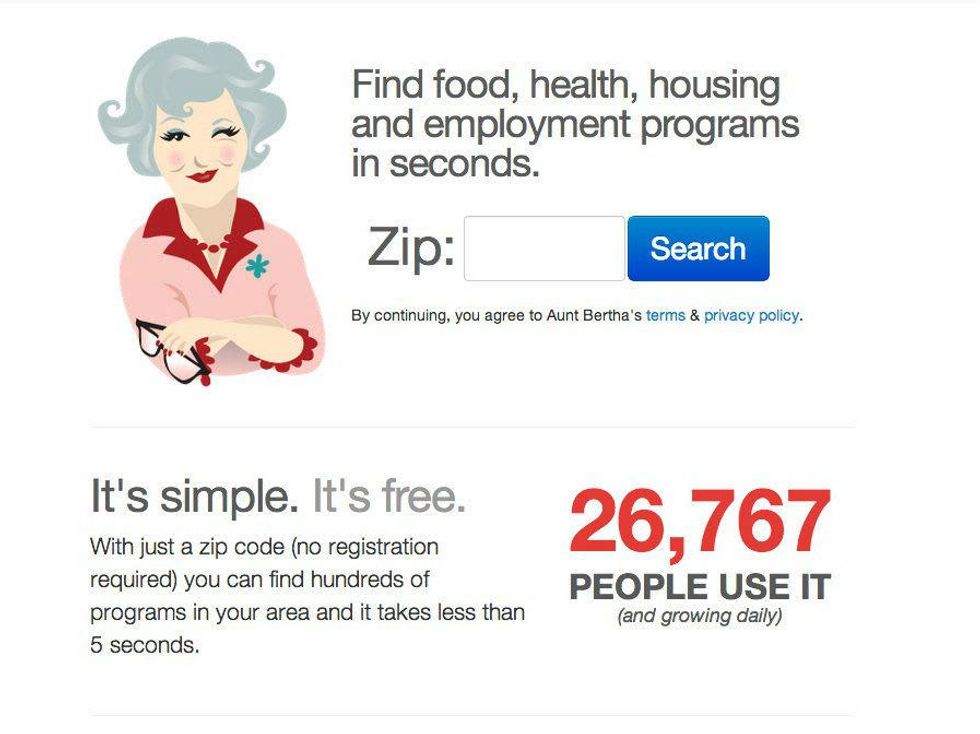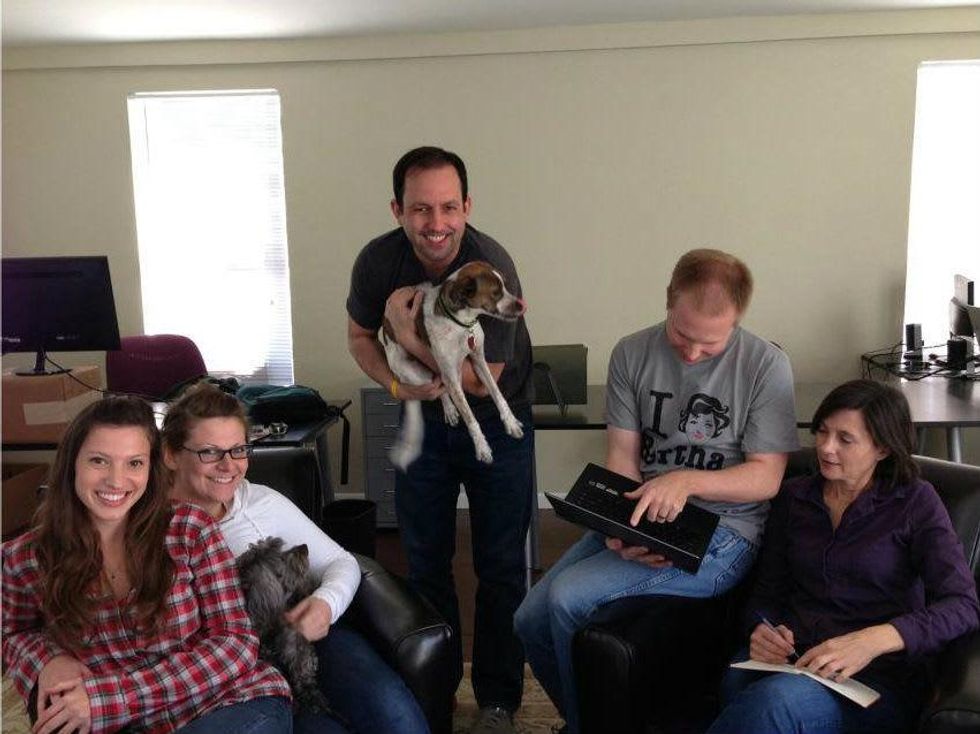Serving the Community
Aunt Bertha picks up where Uncle Sam leaves off, helps Texans find assistance online
In today’s volatile economy, it’s easy to fall on hard times, especially in Texas. Millions of families do not have health insurance or access to a doctor, hundreds of thousands can’t afford to pay their bills or put food on the table, and many cannot find a job that earns them enough to make ends meet.
There’s a clear need for assistance and social services in our state — and country. And while a landslide of government assistance programs and community supports are out there, culling through all of them and figuring out which ones best fit your needs seems almost impossible. The process of finding help when you need it most can usually is daunting, cumbersome and time-consuming. Enter: Aunt Bertha.
Aunt Bertha, or www.auntbertha.com as she’s known online, is an Austin-based, user-friendly search engine that makes finding assistance in your area easier. The website includes data and contact information for every federal, state, county, city, community, charity program information — all in one place.
“Aunt Bertha picks up where Uncle Sam leaves off,” Gray says. The free service is consumer-friendly and empowers users to find the help they need themselves.
Just enter a zip code and Aunt Bertha takes care of the rest, searching for programs based on need, like education, cash assistance, food, health care, housing and employment.
“We list every service available, as long as it’s a human service,” said Erine Gray, founder and owner of Aunt Bertha. “We built it to be as easy as possible, and our goal was for anybody to use it, from nonprofits and social workers to consumers to organizations like Goodwill.”
Aunt Bertha is a natural coalescence of Gray’s professional career with a twinge of personal experience. Gray grew up in upstate New York, and when he was young, his mother was diagnosed with a rare disease. When Gray became his mother’s legal guardian, the responsibility of finding her the care and services she needed fell to him, and he quickly realized how hard that could be. “It was a long and difficult process,” he said. “I felt lost.”
After studying economics at Indiana University, Gray landed in Austin at the University of Texas’ LBJ School of Public Affairs. With his public policy degree, he went on to be a contractor for the state and created software to modernize the health and social services eligibility system. Throughout his work, the need for easily navigable social services and a simple application process became clearer and clearer to him.
“I dusted off my programming books and began building a platform,” he said. Aunt Bertha officially went live in June 2011. With Austin as a test market, the website went statewide in March 2012, and recently launched in Nashville. Gray’s goal is to take the free service national.
“Aunt Bertha picks up where Uncle Sam leaves off,” he likes to say. The free service is consumer-friendly and empowers users to find the help they need themselves. It also makes it easier for social work caseworkers and nonprofits to find services for their clients.
"We've always thought about the use of technology and how we could access that so that our clients would have greater access to services,” said Mario Cortez, the Director of Supportive Housing at Foundation Communities, an Austin-based housing program for low-income families that uses Aunt Bertha as the direct application portal for one of its programs, the Children's Home Initiative.
Since partnering with Aunt Bertha in February, 100 applications for the Children's Home Initiative have been submitted through the website. "This has opened the door to a whole other population that wasn't finding us," Cortez said. Aunt Bertha's "design and search-ability function make it an enjoyable experience searching for resources."
Creating a relatable, accessible caricature to represent his website was part of Gray’s strategy. Every family has an Aunt Bertha — that older, sweet aunt who will pinch your cheeks and do anything for you. In this case, Aunt Bertha, whose cartoon image resembles chef Paula Deen (others have pointed out she looks like the late Texas journalist Molly Ivins), is available online, whenever individuals need her.
With Aunt Bertha's guidance, Gray hopes to give Texans, and the nation, a better chance at navigating existing social programs — to find the assistance they need on their own, and better their lives in the process.


